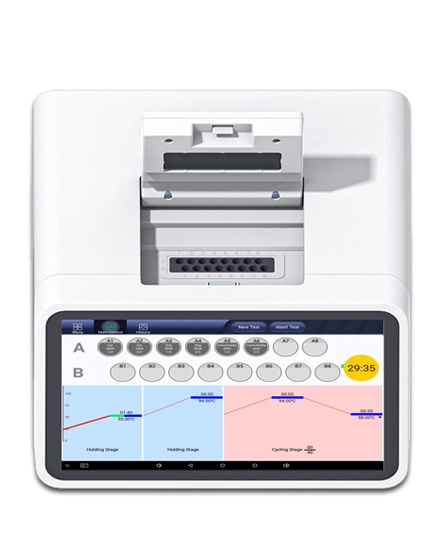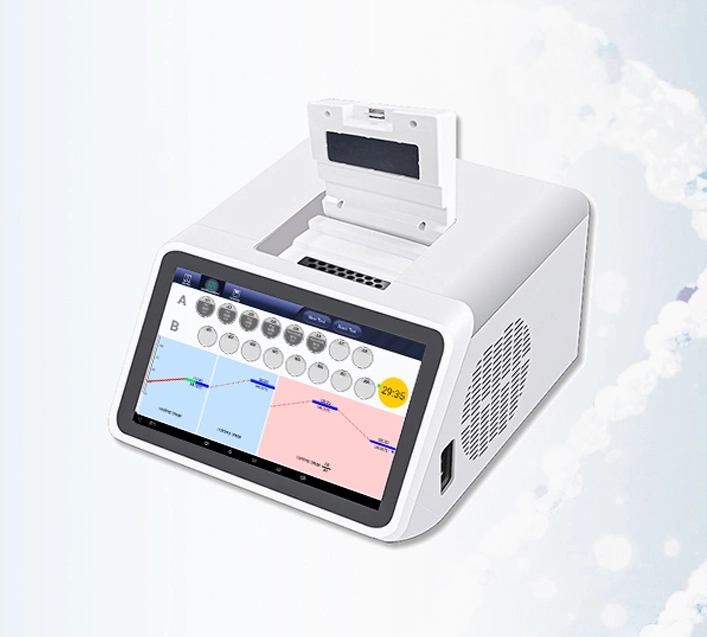- 1707-722-7066
- care@flashtestbio.com
English

The PCR machine maintains specific temperature conditions, including denaturation, annealing, and extension, to enable the replication of specific DNA or RNA segments. The thermocycler is essential for the accurate and efficient amplification of target DNA or RNA during the PCR process.
Denaturation: The PCR instrument initially heats the DNA sample to a high temperature, typically around 95°C, which causes the double-stranded DNA to separate or denature into two single strands.

Annealing: After denaturation, the temperature is lowered to around 50-65°C, allowing primers (short DNA sequences) to bind or anneal to their complementary sequences on each single DNA strand. The primers serve as starting points for DNA replication.

Extension: The temperature is raised to around 72°C, and a DNA polymerase enzyme is added to the reaction mixture. The enzyme extends the primers by adding complementary nucleotides to each single DNA strand. This process results in the synthesis of new DNA strands that are complementary to the original template strands.

These three steps (denaturation, annealing, and extension) constitute one cycle. PCR instruments can run multiple cycles, typically ranging from 20 to 40 cycles, amplifying the specific DNA target exponentially with each cycle.By controlling the temperature precisely and cycling through these steps rapidly, PCR instruments facilitate the amplification of even a small amount of DNA or RNA into millions to billions of copies, enabling various applications such as genetic testing, diagnostics, genotyping, cloning, and DNA sequencing.

PCR instruments play a crucial role in several applications:
1. Research: PCR instruments are extensively used in molecular biology research for amplifying and studying specific DNA or RNA sequences. They enable researchers to investigate gene expression, identify genetic variants, analyze DNA fragments, and study the functions of specific genes.
2. Diagnostics: PCR instruments are used in clinical diagnostics, veterinary medicine, and pathogen detection. They can detect the presence of infectious agents, genetic mutations, or disease markers in patient samples, aiding in the diagnosis and monitoring of diseases.
3. Forensics: PCR instruments play a significant role in DNA profiling and forensic analysis. They allow forensic scientists to amplify and analyze DNA samples from crime scenes, identify suspects, establish familial relationships, and provide evidence in legal investigations.
4. Quality control: PCR instruments are utilized in various industries, such as food safety, agriculture, and environmental testing, for quality control purposes. They can detect the presence of contaminants, pathogens, or genetically modified organisms.

Get In Touch With Us Now!
Tel:
1707-722-7066Email:
care@flashtestbio.comAdd:
100 Dicui Rd., Block 6, 3F East, Liyuan Development Zone, Wuxi, Jiangsu Province